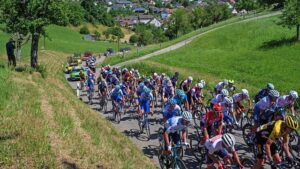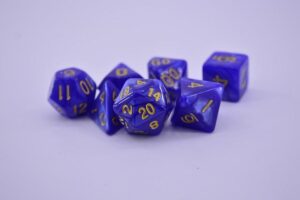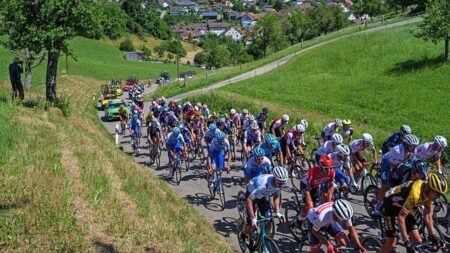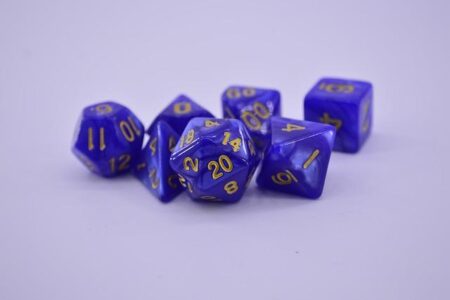In a significant development ahead of the upcoming Road World Championships, reigning star Mathieu van der Poel has confirmed that he will not be participating in the event, paving the way for a fresh face to lead the Dutch national team. Instead, Tour de France double stage winner Thymen Arensman has been appointed as the team leader for the championship in Rwanda. This decision marks a notable shift in strategy for the Netherlands, as they aim to capitalize on Arensman’s recent successes on the road. With van der Poel focusing on other pursuits, the stage is set for Arensman to make his mark on the international cycling scene.
Mathieu van de Poel Withdraws from Road World Championships as Thymen Arensman Takes Charge of Dutch Team
In a surprising turn of events, reigning champion Mathieu van der Poel has announced his withdrawal from the upcoming Road World Championships in Rwanda. The decision comes as a setback for the Dutch team, who were banking on van der Poel’s formidable prowess and experience. This year, the championships promise to be a fierce battle as nations prepare to compete at an elite level, and van der Poel’s absence notably alters the landscape for the event. Fans and analysts alike are speculating on the implications of his withdrawal, especially with the pressure mounting on his teammates.
Stepping into the spotlight in van der Poel’s stead is Thymen Arensman, the recent double stage winner in the Tour de France, who now takes the helm as the leader of the Dutch squad. Known for his resilience and tactical acumen, Arensman has quickly risen through the ranks and is set to test his mettle on the world stage. The team’s strategy will revolve around Arensman’s ability to navigate challenging terrains and aggressive racing styles, with key support from other notable cyclists. Key aspects of their strategy include:
- Strong team dynamics: Building a cohesive unit to support Arensman.
- Optimal pacing: Ensuring the team maintains speed without overexerting.
- Adapting to terrain: Utilizing Arensman’s strengths in different cycling conditions.
Analysis of Team Strategy: Arensman’s Leadership Role and Its Implications for Dutch Cycling
Thymen Arensman’s selection as the Dutch team leader for the upcoming Road World Championships in Rwanda marks a significant shift in strategy for the national cycling team. With the absence of star rider Mathieu van der Poel, who has opted out of the race, Arensman steps into a pivotal leadership role, especially following his impressive performance in the Tour de France where he secured double stage victories. This decision underscores the team’s commitment to fostering emerging talent and adapting their strategy to capitalize on current strengths. Arensman’s ability to rally and inspire his teammates will be crucial in maximizing results on the world stage.
Arensman’s leadership is not just about race tactics; it also reflects a long-term vision for Dutch cycling. The team’s strategy under his guidance will likely focus on enhancing collaboration among riders and leveraging individual strengths to create a cohesive unit capable of competing against strong international fields. Key elements of this strategy include:
- Promoting Team Cohesion: Emphasizing teamwork and support among riders to navigate the challenges of the course.
- Tactical Flexibility: Developing adaptive race plans that can respond to changing conditions and competition.
- Focus on Development: Utilizing this platform to nurture younger talent, ensuring a competitive future for Dutch cycling.
This new approach will not only impact the immediate race strategies but will also shape the trajectory of Dutch cycling, fostering a deeper bench of talent for future international competitions.
Future Prospects: Assessing the Impact of Van de Poel’s Absence on National Team Performance in Rwanda
Mathieu van der Poel’s absence from the upcoming World Championships in Rwanda leaves the Dutch national team with a notable gap in its roster. As a multi-faceted racer who excels in various disciplines, his non-participation raises questions about the team’s overall competitiveness on the global stage. The shift in leadership to Thymen Arensman, who recently showcased his talent by winning two stages at the Tour de France, brings both opportunities and challenges. His leadership might foster a fresh team dynamic, but the pressure to perform in the absence of a star like van der Poel could affect morale and performance on the road.
Rwanda presents a unique course that typically favors climbers and tacticians, and the team must adapt quickly to the challenges ahead. Key aspects that could define their performance include:
- Strategic Planning: A strong game plan will be essential in compensating for van der Poel’s void.
- Teamwork: Uniting around Arensman as a lone leader can enhance collective strength.
- Adaptation: Assessing the course specifics to optimize each rider’s skills will be critical.
| Team Goals | Key Strategies |
|---|---|
| Maximize Stage Performance | Utilize Climbers Effectively |
| Maintain Team Cohesion | Encourage Open Communication |
| Aim for Podium Finishes | Focus on Tactical Racing |
Insights and Conclusions
In conclusion, the decision not to include Mathieu van der Poel in the Dutch team for the upcoming Road World Championships marks a significant shift in team dynamics and strategy. With Thymen Arensman stepping up as the leader, the Netherlands will be relying on his recent success at the Tour de France to make a strong showing in Rwanda. As the cycling world anticipates the championship, all eyes will be on Arensman and his teammates to see if they can rise to the occasion and secure a coveted victory in the absence of van der Poel. The road ahead promises to be challenging, and the implications of this strategic choice will undoubtedly be felt in the unfolding narrative of professional cycling.











